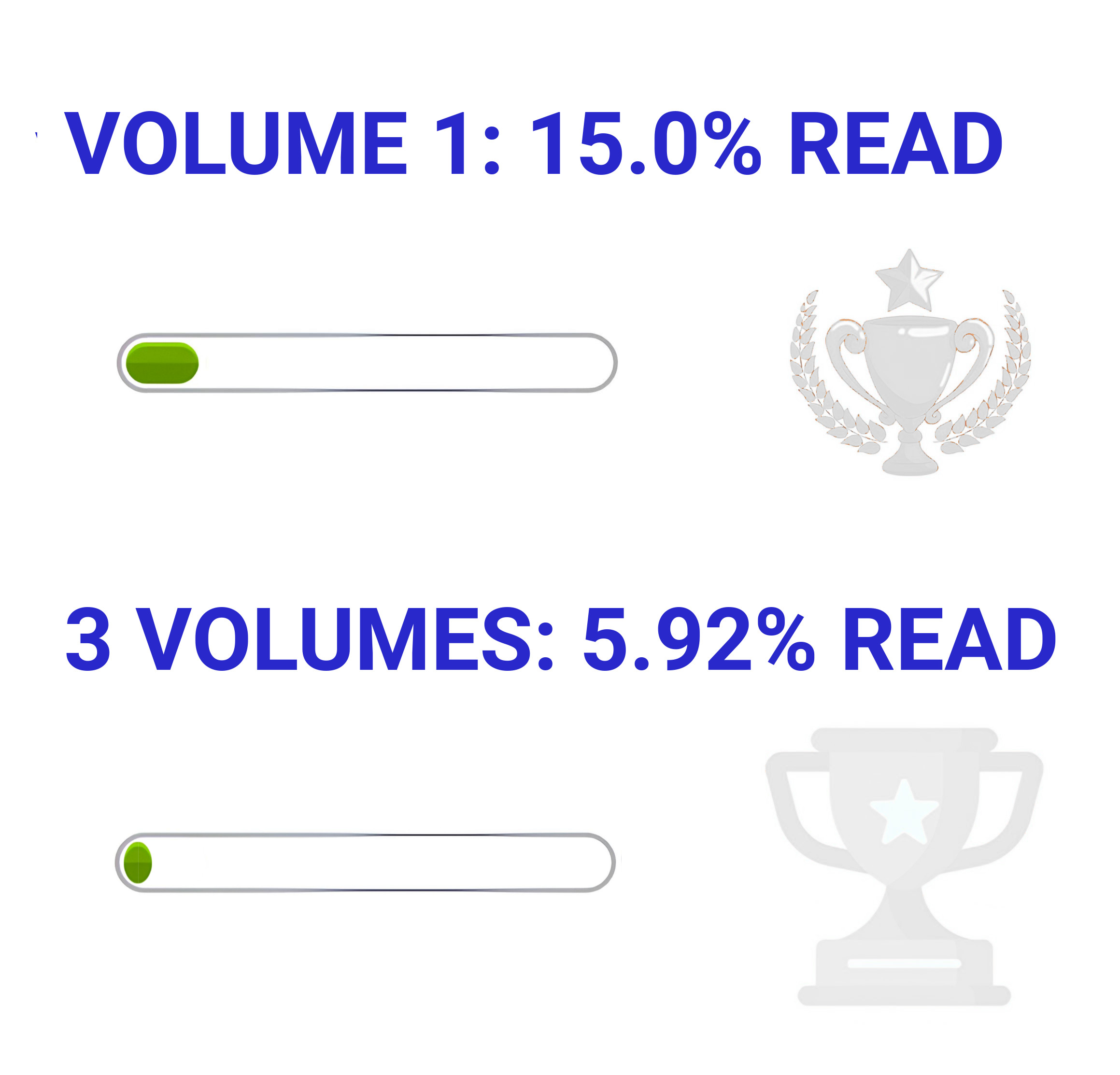Wow this is going great. The hard part is over, and now we have hit a stride. We have learned Karl Marx's theory of money, and of trade. We have learned what capital is and how it differs from money.
If you've made it this far, you've done the hardest part. Several people noticed it is getting easy and fun now. All the same, don't let up til we reach our destination.
Please be chatty in the comments. Let us know you're here.
The overall plan is to read Volumes 1, 2, and 3 in one year. (Volume IV, often published under the title Theories of Surplus Value, will not be included in this particular reading club, but comrades are encouraged to do other solo and collaborative reading.) This bookclub will repeat yearly. The three volumes in a year works out to about 6½ pages a day for a year, 46⅔ pages a week.
I'll post the readings at the start of each week and @mention anybody interested. Let me know if you want to be added or removed.
Just joining us? It'll take you about seven hours to catch up to where the group is.
Archives: Week 1 – Week 2 – Week 3
Week 4, Jan 22-28, we are reading Volume 1, Chapter 6, Chapter 7, and Chapter 8
Discuss the week's reading in the comments.
Use any translation/edition you like. Marxists.org has the Moore and Aveling translation in various file formats including epub and PDF: https://www.marxists.org/archive/marx/works/1867-c1/
Ben Fowkes translation, PDF: http://libgen.is/book/index.php?md5=9C4A100BD61BB2DB9BE26773E4DBC5D
AernaLingus says: I noticed that the linked copy of the Fowkes translation doesn't have bookmarks, so I took the liberty of adding them myself. You can either download my version with the bookmarks added, or if you're a bit paranoid (can't blame ya) and don't mind some light command line work you can use the same simple script that I did with my formatted plaintext bookmarks to take the PDF from libgen and add the bookmarks yourself.
Resources
(These are not expected reading, these are here to help you if you so choose)
-
Harvey's guide to reading it: https://www.davidharvey.org/media/Intro_A_Companion_to_Marxs_Capital.pdf
-
A University of Warwick guide to reading it: https://warwick.ac.uk/fac/arts/english/currentstudents/postgraduate/masters/modules/worldlitworldsystems/hotr.marxs_capital.untilp72.pdf
-
Reading Capital with Comrades: A Liberation School podcast series - https://www.liberationschool.org/reading-capital-with-comrades-podcast/

Ok, what?
Isn't he suddenly denying the labour-theory of value and saying that exchange-value can change at a whim?
He's not saying it can change at a whim. Its just that saying "exchange value varies" is easier than saying "the method of producing the commodity increases or decreases in productivity in a given society so that the commodities produced each contain labour and hence hence its value is reflected in a smaller quantity of other commodities".
Marx will generally go over a process in exhaustive detail (e.g. how value can vary), and then use shorthand afterwards (value varies) instead of restating the whole complicated process.
I don't think so, I think what he means is that the value being added by labor remains constant. If one laborer is suddenly producing 6 times more product each one is proportionally growing less in value than before because less socially necessary labor time is required to make it. So labor remains constant insofar as it's an average of the time it takes to make or do something useful. The surplus value is coming from the same source in both cases and isn't changing with the other factors.